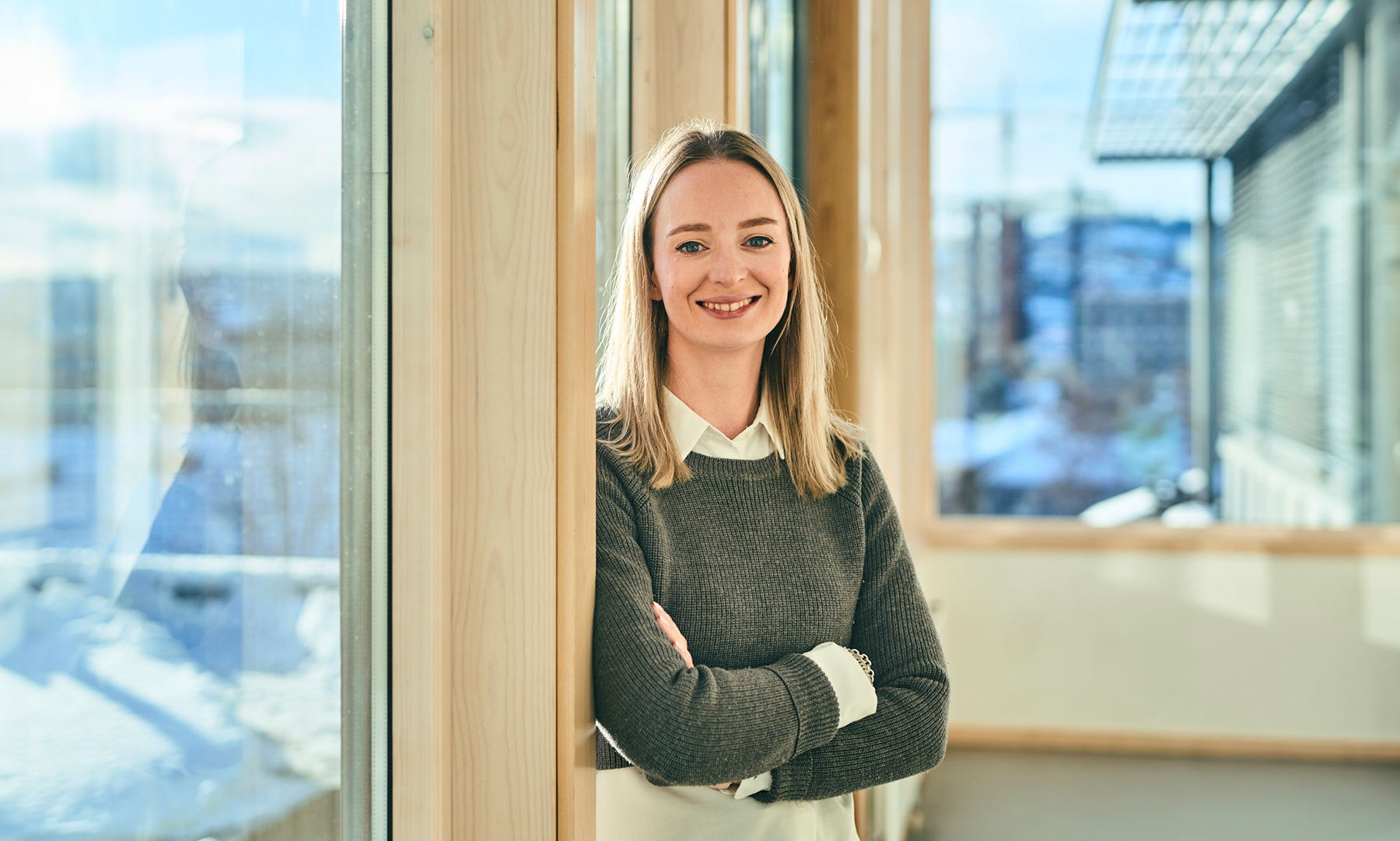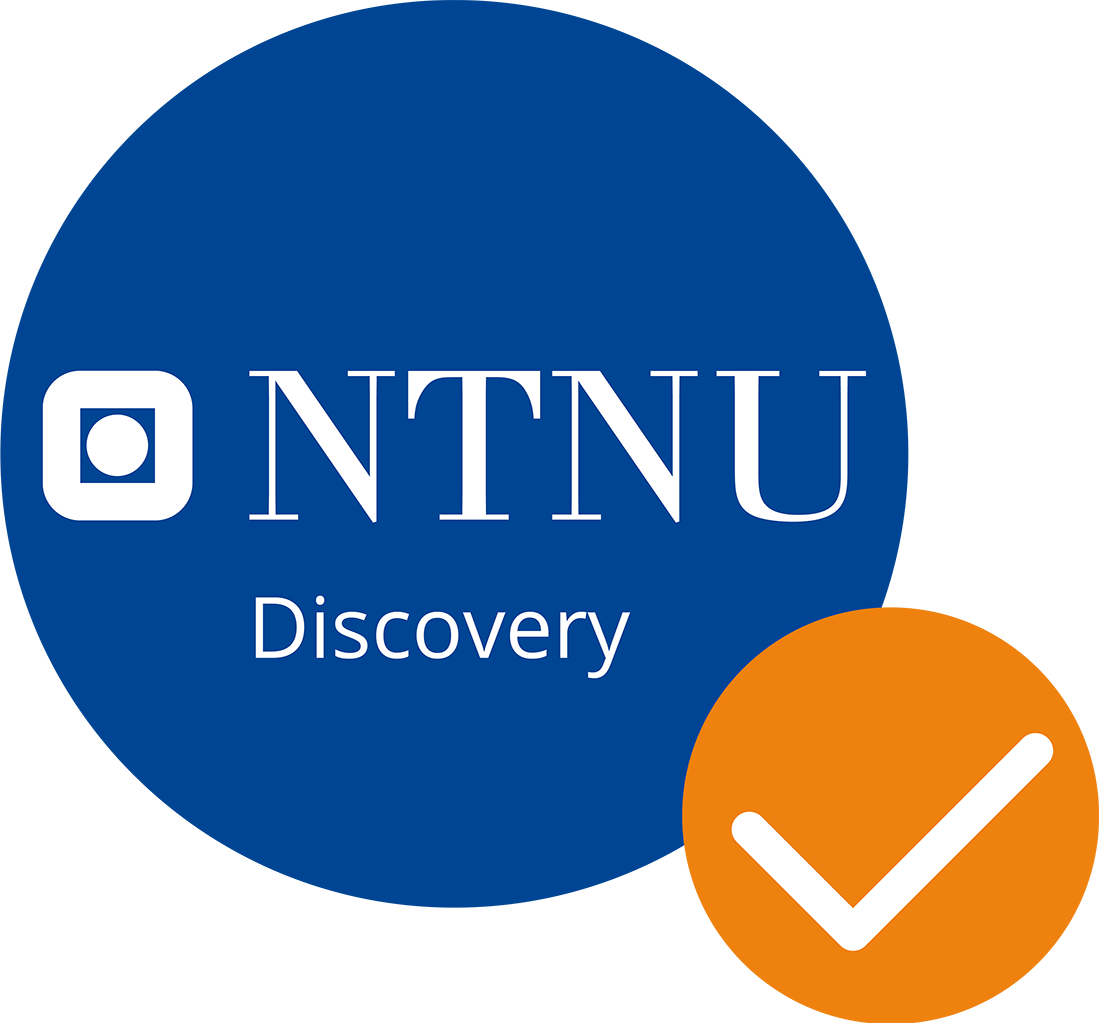
Summer in Tyrol
Coline Senior swapped holiday beach life for five hectic days at the IECT summer school for academic entrepreneurs in Wattens, Austria.
Text: Per-Steinar Moen
Photo: Kristoffer Wittrup
In the idyllic Austrian village of Wattens, 13 kilometers east of Innsbruck in North Tyrol, the temperature is high. The heavy afternoon sun pushes the mercury into the 40s on this August day. While others use such summer days for lazy hours on the beach with a light crime novel in one hand and an ice-cold drink in the other, a group of ambitious, enthusiastic academics chose five days of pitching ideas, developing business plans and strategies, and, most importantly, receiving advice from experienced and successful technology entrepreneurs.
NTNU Discovery has a collaboration with IECT–Hermann Hauser (Institute for Entrepreneurship Cambridge Tirol), giving employees at NTNU and Helse Midt-Norge the opportunity to attend summer school in Tyrol. Austrian Hermann Hauser is one of the foremost entrepreneurs in Britain, described as a central figure in the development of Silicon Fen in Cambridge – the UK’s Silicon Valley – and the founder of Acorn, later developing ARM processors.
In 2023, three entrepreneurs from Trondheim participated, each bringing a business idea. Coline Senior is a PhD student at the Department of Civil and Environmental Engineering. She works on involving children and young people in participatory processes related to urban development. The authorities want as many voices as possible to be heard when cities and communities are developed. The Norwegian Planning and Building Act specifically mentions children and young people as a group requiring extra effort: “The municipality has a special responsibility to ensure active participation from groups requiring special arrangements, including children and young people. Groups and interests unable to participate directly must be given good opportunities for participation in other ways.”

Coline Senior demonstrates a test version of the ByMaker (“citymaker” in Norwegian) game.
The Future at Stake
“The ambition is for it to be used in participatory processes,” says Coline Senior. She is writing a PhD on children’s involvement in the planning of smart cities. The goal is to make cities and municipalities more sustainable and everyday life easier using digital tools. As an architect, she found it strange to sit behind a screen all day reading and writing reports. “Okay, we can write a report on how to involve children in urban planning. It has been done before with varying success. Or we can actually do something about it, now that we understand the challenge. Can we contribute to a solution? Can we help them with something concrete?” she says.
In response to this challenge, Coline Senior created the urban development game ByMaker. She starts the game, initially featuring a model of her hometown Trondheim. Fossil fuel vehicles are banned around the Nidaros Cathedral and the Cathedral School. Build energy-positive plus houses that generate more energy than they consume in the whole block? Done. Plant trees and build treehouses for children to make use of public spaces and nature? Why not! An energy-positive, zero-emission amusement park by the cathedral? Build!
In a few keystrokes, Coline Senior has turned Trondheim into an environmental paradise. For each choice she makes, the score changes on parameters such as economy, social conditions, and climate and environment. The virtual Trondheim scores very high on climate and environment. But economy and social conditions get a low score. “And the idea is that in the next task, the goal is to balance the three. Maybe we need to sacrifice something to make the environment get a higher score on social conditions?” says Coline Senior.
The ambition is to teach children and young people about sustainable urban development and how different urban planning decisions affect various aspects of sustainability. “Through our research we found that very little has been done to ensure that people understand what this is about before they provide input to a plan,” she says.
Summer School Instead of Project Funding
Coline Senior received pre-project support from NTNU Discovery to develop the game. She also applied for main project funding but the application was rejected partly because the project’s business plan was too weak. “Of course it was, because it’s not my field. I’ve never made one before,” she says. Instead of a million kroner, she was offered the opportunity to attend the summer school for academic entrepreneurs as a chance to strengthen the business plan. She accepted before fully understanding what it entailed.
So, in the middle of the European summer holiday, she found herself in the Tyrolean landscape, surrounded by picturesque mountains, along with a group of technology-oriented entrepreneurs from academic environments and engaged, wealthy investors who had made business plans several times in their careers. Here, business plans for new generations of antibiotics, smart gadgets, and sensors full of artificial intelligence and other engineer-driven innovations were to be developed.

Coline Senior meeting an expert during the course. Photo: Verena Nagl
For Coline Senior, it was intense from the start, with five full days of intensive teaching, workshops, and presentations. There wasn’t even time to visit the headquarters and museum of the crystal producer Swarovski, located in Wattens.
On the first evening, all participants had to give a three-minute presentation of their own idea in front of the other participants, experts, and attendees. While most of the students and lecturers came from heavy technological environments, Coline Senior has an architectural background.
“I was a complete outsider. It became very obvious when we first explained what we were doing,” says Coline Senior. She felt her invention – a simple educational game aimed at children in municipal urban planning processes – didn’t quite belong in the deep tech environment the school primarily targets. One of the many experts she met was very skeptical of her idea: “Who is going to be interested in that? No one will pay for such a solution!” he concluded.
“But then I had a new session with another expert,” she says. Coline Senior told this expert about her experience and said, “I don’t belong here!” The new expert said: “Yes, you do. What you are doing is very important. Because you are teaching children about sustainability, technology, innovation, and everything – so that those here can hire smart people in the future!”
Motivating
Coline Senior doesn’t hide that there were several ups and downs exploring idea outside the comfort zone. But she is clear that the summer school was useful for her project.
“It was great fun. The people running IECT were very good at including everyone; they were very good at helping us move forward. They were most concerned that people were motivated and engaged,” she says. For her, the academic benefits were significant. Particularly inspiring and educational was meeting the skilled, charismatic, curious, and experienced mentors from a heavy technological environment in Cambridge and its network, such as Hermann Hauser (who the school is named after) and Jamie Urquhart, with whom Coline Senior made good contact.
“I have learned a lot about business models, strategy, staffing. Yes, recruiting people, I had never thought about that. I am running a small project that I think is fun, and I have gotten people to work for free, but at some point, you have to hire people for the project to move forward,” she says.
She has been asked by Toril Hernes, the Pro-Rector for Innovation at NTNU, if such a summer school could be possible to establish in Norway. “I quickly – maybe a bit too quickly – answered that I don’t think Norway alone could achieve it. But with cooperation with other Nordic countries? Absolutely. What was strong about IECT was that top-level people took the time to travel to the middle of nowhere in Austria in August. There were big names, with great success in entrepreneurship and technology,” says Coline Senior.

Test version of the ByMaker game
Back in Trondheim, the project continues. Back in Trondheim, the project continues. Coline Senior and the team, including colleague Mara Gabriela Diaconu, supervisors Alenka Temeljotov Salaj and Agnar Johansen, and IT developer Ana Cepuran, are working on a new version of the game and planning to apply for additional funds from NTNU Discovery. They have already pitched for the ChangeNOW conference in March and are further seeking investors so that ByMaker in the future can be used to give children a voice and understanding of how humanity can live more sustainably.
Other news
Muting rooms with mushrooms
The founders of Demp believe that the mushroom's root network can be used in everything from soundproofing panels to replacing asphalt.
Viruses Built to Target
Rajeevkumar Raveendran Nair at the Kavli Institute of Neuroscience has received NOK 1 million to further develop transport viruses that can transport gene-therapy drugs, but only activate them in specific cells. EDGE-Tx is the virus that may become an important tool in the fight against Alzheimer’s disease.
Contact:
Project Manager
Jan Hassel
Email: jan.hassel@ntnu.no
Telephone: +47 906 53 180
Office: Main building
Håvard Wiebe
Email: havard.wibe@ntnu.no
Telephone: +49 414 73 768
Office: Main building



